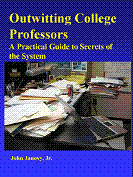Papers in the Biological Sciences

John J. Janovy, Jr. Publications
Document Type
Article
Date of this Version
6-2001
Abstract
Numerous studies of host starvation have emphasized pathological effects of parasites on their insect host, but little attention has been focused on the effects of host starvation on the parasites. This study addressed the possibility that parasite life-cycle events could be manipulated by withholding food from the host. The system used was Gregarina niphandrodes (Apicomplexa: Eugregarinida) in Tenebrio molitor (Coleoptera: Tenebrionidae) adults. Gregarine gametocyst formation and shedding ceased after one day in starved beetles but continued in fed controls. There were no statistically significant differences between total lengths of associated (3 of 5 trials) or unassociated (5 of 5 trials) gregarines found between experimental and control groups, but average numbers of the two life cycle events were generally higher in fed hosts than in starved ones. If infected, fed control beetles continued to form gametocysts throughout the 7-day trial periods, and gametocysts could be observed in the gut. Starved experimental beetles had no gametocysts in their guts. Refeeding of starved beetles after four days resulted in resumption of gametocyst formation and shedding. The studies demonstrated that the gregarine life cycle could be stopped and then started at the gametocyst formation stage like an off/on switch, simply by withholding food from, then refeeding, the host.


Comments
Published in the Journal of Parasitology (June 2001) 87(3): 600-605. Copyright 2001, the American Society of Parasitologists. Used by permission.